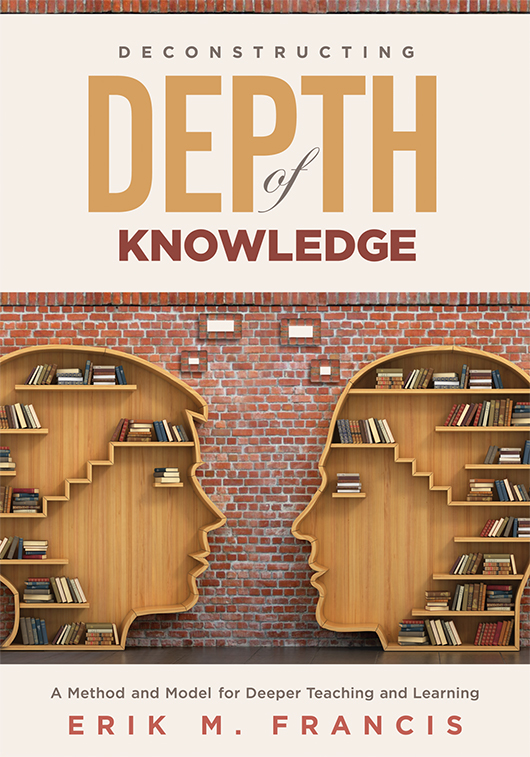Free Reproducibles
Deconstructing Depth of Knowledge
A Method and Model for Deeper Teaching and Learning
If your understanding of depth of knowledge (DOK) is a little cloudy, you’re not alone. This resource is your one-stop-shop for learning what it is and how to use it to provide learning experiences that are academically rigorous, socially and emotionally supportive, and student responsive.
Benefits
- Learn how DOK is a different, deeper way of approaching teaching and learning.
- Explore the different DOK levels and how they relate to instruction.
- Understand DOK’s relationship with standards and assessment.
- Designate correct levels based on learning needs.
- Acquire strategies for helping students engage with DOK on a deeper level.
Table of Contents
Chapter 1: What Exactly Is Depth of Knowledge?
Chapter 2: What Are DOK Teaching and Learning Experiences?
Chapter 3: How Can DOK Teaching and Learning Experiences Be Developed and Delivered?
Chapter 4: How Could the DOK Levels Serve as a Multitiered System of Supports?
Chapter 5: How to Deconstruct Learning Intentions for Depth of Knowledge
Chapter 6: How to Designate the DOK Level a Task Demands
Chapter 7: How to Construct DOK Learning Targets and Success Criteria
Chapter 8: How to Ask and Address Good Questions for Depth of Knowledge
Chapter 9: Let’s Make a DOK!
Epilogue
PRINTABLE REPRODUCIBLES
- Figure 1.3: Webb’s DOK Levels as Blocks
- Figure 1.4: Using DOK Blocks as a Multitiered System of Support
- Figure 2.1: Rigorous Teaching and Learning for Depth of Knowledge
- DOK Chart for Deconstructing Learning Intentions
- DOK Chart for Determining the Depth of Knowledge Demanded by a Learning Intention
- DOK Learning Target Grid
- DOK Teaching and Learning Plan Template
- From Targets to Criteria to Questions
SUGGESTED RESOURCES
Books
- Bentley, J., & Toth, M. (2020). Exploring wicked problems: What they are and why they are important. Bloomington, IN: Archway Publishing.
- Buffum, A., Mattos, M., & Malone, J. (2018). Taking action: A handbook for RTI at work. Bloomington, IN: Solution Tree Press.
- Buffum, A., Mattos, M., & Weber, C. (2009). Pyramid response to intervention: RTI, professional learning communities, and how to respond when kids don’t learn. Bloomington, IN: Solution Tree Press.
- DuFour, R., & DuFour, R. (2012). Essentials for principals: The school leader’s guide to Professional Learning Communities at Work. Bloomington, IN: Solution Tree Press.
- DuFour, R., DuFour, R., Eaker, R., Many, T. W., & Mattos, M. (2016). Learning by doing: A handbook for Professional Learning Communities at Work (3rd ed.). Bloomington, IN: Solution Tree Press.
- DuFour, R., & Eaker, R. (1998). Professional Learning Communities at Work: Best practices for enhancing student achievement. Bloomington, IN: Solution Tree Press.
- Marzano, R. J., & Simms, J. A. (2013). Vocabulary for the Common Core. Bloomington, IN: Marzano Research Laboratory.
- Marzano, R. J., Rogers, K., & Simms, J. A. (2015). Vocabulary for the new science standards. Bloomington, IN: Marzano Resources.
- Mattos, M., DuFour, R., DuFour, R., Eaker, R., & Many, T. W. (2016). Concise answers to frequently asked questions about Professional Learning Communities at Work. Bloomington, IN: Solution Tree Press.

